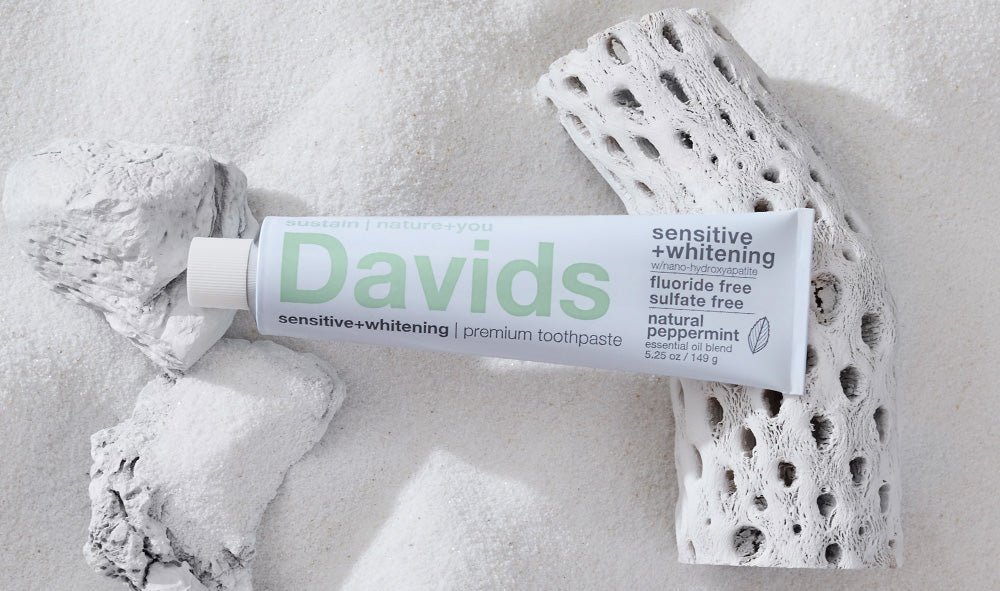Do you wake up in the middle of the night with your teeth clenched? Or find that you're holding your tension in your jaw throughout the day?
Teeth grinding/clenching (bruxism) is a common problem. It’s estimated that 1 in 3 adults experience it throughout the day, while 1 in 10 adults experience it throughout the night.
The thing is, teeth grinding is not an easy problem to treat since there are so many different causes and impacts. Today, we’re going to discuss some of the common ones....since awareness is one of the first steps to understanding, evaluating, and adjusting the things that might be causing your chronic clenching.
what causes grinding teeth?
It’s likely that several factors are contributing to your chronic teeth grinding. We’ve listed some of the common ones below. We encourage you to make a mental note of the ones that pertain to you.
Daytime teeth grinding is often associated with:
- stress
- anxiety
- tension
- acid reflux
- concentration
Nighttime teeth grinding is often associated with:
- sleep apnea
- smoking
- drinking
- drug use
- excess caffeine consumption
- parasitic infection
Keep in mind that certain medications (such as SSRIs) can also contribute to teeth grinding throughout the day or night. On top of this, mineral deficiencies such as low calcium + vitamin D levels and low magnesium levels have been known to play a role in clenching, too.
what are some side effects of grinding teeth?
Those of you who have dealt with teeth grinding are very aware of its side effects, some of which are listed below.
- sore jaw muscles: these muscles may appear more prominent (your jaw may look bigger/wider) after years of clenching, too.
- ear aches: have you ever thought you had an ear infection, but the doctor tells you it’s really just tightness from clenching your jaw?
- tension headaches: these typically feel like someone is squeezing your head, and the pain can be felt all around your head (rather than just in one particular area).
- tooth damage: over time, teeth grinding can “wear down” your teeth. In serious cases, it can even cause tooth fractures.
- tooth pain: teeth grinding can wear down your enamel, which can expose the tubules in your teeth that lead to your center nerve. This can cause sensitivity and pain.
- restricted range of motion in the jaw: tightness in this muscle can make it difficult to use your jaw's full range of motion. It can also make chewing feel painful and frustrating.
- temporomandibular joints (TMJ): located near your ears, TMJ can produce a clicking sound when you open and close your mouth.
It’s clear that teeth clenching can impact your long-term health in many different ways, so we want to help you do everything you can to manage these symptoms. We’ve provided some advice on relief below.
how to relieve tooth pain from grinding
Since we’re a toothpaste brand, it’s only natural that we focus on the tooth-related side effects of bruxism. But don’t worry, we’ll touch on tips for a few other symptoms too.
nano-hydroxyapatite (n-Ha)
In regards to tooth pain, one of the best things you can do to manage it is to protect and remineralize your enamel with nano-hydroxyapatite.
As discussed in our previous article, brushing daily with our hydroxyapatite toothpaste can actually help to restore your enamel even after it's been damaged, so it’s one of the best methods for relieving tooth pain from grinding.
You see, hydroxyapatite already naturally exists in your enamel, making up 97% of your enamel and 80% of your dentin (the layer right beneath the enamel). We also discussed that teeth grinding can be caused by calcium deficiency, and hydroxyapatite can help with that too! It’s a calcium-based mineral (calcium phosphate to be exact), so it’s a great supplement to replenish this mineral to keep your enamel healthy. Not to mention, nano-hydroxyapatite utilizes tiny particles to bind to the enamel to fill small holes, scratches, and depressions caused by bacteria and grinding.
On top of that, our hydroxyapatite toothpaste has proven effective in reducing sensitivity. In our third-party lab test, Davids Sensitive + Whitening Nano-Hydroxyapatite Toothpaste outperformed other leading sensitive toothpastes from brands such as Apagard Premio, Boka, Colgate Sensitive, Risewell, Sensodyne Pronamel, and Tom’s Sensitive. Our formula was the most effective at plugging existing holes in the enamel (see photo evidence below), strengthening damaged areas to provide tooth sensitivity relief. This is amazing news for those of you who are dealing with sensitivity from teeth grinding and beyond!
stress management
Now, how can you treat the other pesky symptoms like headaches, ear aches, and jaw soreness? Our number one tip: stress management. We encourage you to practice habits such as meditation, mindfulness, hydration, movement, avoiding harmful substances, eating a balanced diet, detoxing your self-care routine, and sleep hygiene to reduce your body’s stress load and support your parasympathetic nervous system (the one that’s responsible for resting + digesting). Reducing your overall stress can work wonders on chronic teeth grinding...and a host of other issues that you may experience on a daily basis. (Note: We also encourage you to visit your dentist to talk about the best course of action for treating your bruxism. If habitual changes do not produce positive results, your dentist may suggest a mouth guard or a specific dental procedure.)
On the subject of detoxing your self-care routine, natural toothpaste is the perfect place to start. Davids is formulated with intentional ingredients derived from nature. And our sensitive toothpaste adds the enamel-strengthening powers of hydroxyapatite to your daily routine. Why not give it a go?







